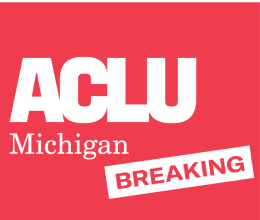Anyone at all familiar with Michigan’s emergency manager law knows that the people handed control of municipalities and school districts facing financial crises have extraordinary power.
In fact, the law goes even further than many realize, creating the possibility that residents of cities under emergency management may emerge from state control with a completely revamped form of local government imposed on them by the governor.
Under Michigan’s emergency manager law, self-determination is no longer a given.
It is an issue that’s currently generating some controversy in Flint, where emergency manager Darnell Earley has appointed a so-called Blue Ribbon Committee that is meeting behind closed doors.
Among other things, the 23-member committee is considering revisions to the city’s charter – including the possibility of switching from the current strong-mayor form of government to one where elected officials hire a city manager to oversee day-to-day operations.
“The Blue Ribbon Committee on Governance for the City of Flint was created to recommend to the Emergency Manager both a model of city governance and a pathway to implement recommended revisions,” Earley wrote in response to questions his spokesperson requested be submitted in writing. “This group serves in an advisory role to the emergency manager and is tasked with reviewing issues of finance best practices (with information and analysis provided by economist Dr. Eric Scorsone of Michigan State University), governance models and charter review.”
One advantage of this approach is that the process moves much more quickly than the traditional approach to charter revisions. The goal, explained Earley, is to ensure that a city that has twice gone into receivership emerges from this second round of state control with a plan in place to prevent yet another crisis.
There is, however, much about this process that deeply concerns Nayyirah Shariff, a Flint resident who belongs to a group of activists who call themselves the Democracy Defense League.
“What they are doing with this Blue Ribbon Committee is circumventing the legal process,” said Shariff. “I’m extremely upset by what is happening. It is another kind of affront.”
Shariff points to Michigan’s Home Rule City Act and Flint’s current city charter, both of which define the legal process that is supposed to be followed if there is a desire to revise what is the equivalent of a city’s constitution. If the law were being followed, those charged with coming up with a new charter would be directly elected by the public, and would hold open meetings.
That’s the way things worked in Detroit, which, in 2009, began what turned out to be a two-year charter revision process.
Tonya Myers Phillips, who was appointed to the Detroit Charter Revision Commission when one of its nine elected members resigned (she had the next highest number of votes), says that having open meetings attended by the general public from the very start was a critical part of the process.
In a sense, it began as the Flint process has begun, with experts providing an in-depth explanation of different governance models. However, by having an open approach that included the general public, “everyone was on an equal footing,” observed Phillips.
It wasn't just the commission members being “educated” about the various options open to them, and gaining a solid understanding of the pros and cons of each, put the public as well.
Public comments were held at every meeting, creating the opportunity for city residents to provide ideas of their own for making city government better. In the end, and new charter was produced – and approved at the ballot box - that included everything from instituting a system of having city council members elected by districts to mandating curbside recycling.
“The citizens became better educated, and became advocates for the charter themselves,” said Phillips.
Flint Mayor Dayne Walling, one of those appointed by the emergency manager to be on the Flint committee, said he's comfortable with members meeting behind closed doors for now, while the process is still in its early stages, but that he expects things to open up soon, with public discussion and, eventually, a city-wide vote.
"I can say my expectation is that there will be a number of charter amendments that would go to the voters," he said.
But there is no guarantee that will happen.
"The advice produced by the committee will aid the Emergency Manager in making recommendations to a transition Advisory Board,” Earley noted in the statement he provided. “It is the hope of the Emergency Manager that the advice produced by the committee will help to better frame the governance revisions needed in the city and provide long-term solutions that will prevent such financial stress from occurring in the future.
Earley makes no mention of letting the residents of Flint have the final say on what shape their city government will take once emergency management ends.
As for the line in the state’s law that enables the governor to impose a "model" charter on cities emerging from state control, well, even Walling has deep concerns about that.
"It is legally untested," he said, "and it introduces a lot of uncertainty in addition to being anti-democratic."

